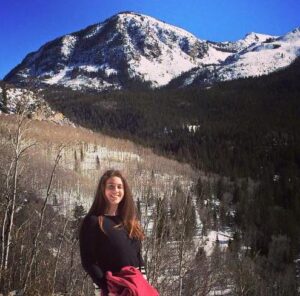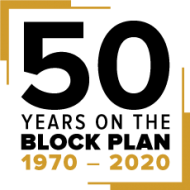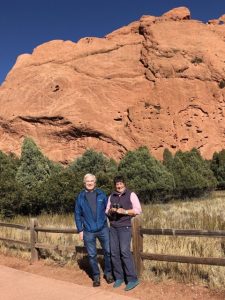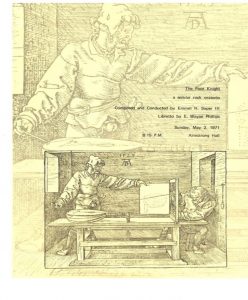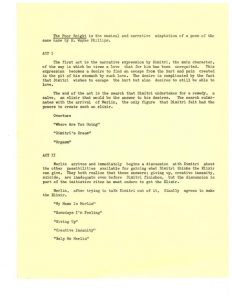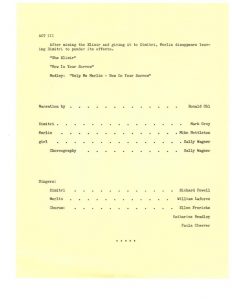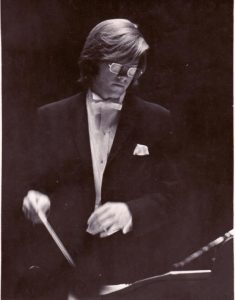 There are few honors I can claim to my name that meet as high a bar as was set at C.C. in 1970/71. But here I am, 50 years later and part of the class of ’71, honored to be the first class to graduate under the block plan! It was a rite of passage to enter as a freshman in 1967, going from Slocum Hall to Mathias, transitioning through a traditional A,B,C,D,(never mind) grading system to then enter the world of pass fail, credit no credit and finally the block plan. Whew! Can you imagine what our transcripts must have looked like? Ask a classmate applying to med school and trying to explain what a “CR” meant. And yet we all prevailed, privileged to say the least.
There are few honors I can claim to my name that meet as high a bar as was set at C.C. in 1970/71. But here I am, 50 years later and part of the class of ’71, honored to be the first class to graduate under the block plan! It was a rite of passage to enter as a freshman in 1967, going from Slocum Hall to Mathias, transitioning through a traditional A,B,C,D,(never mind) grading system to then enter the world of pass fail, credit no credit and finally the block plan. Whew! Can you imagine what our transcripts must have looked like? Ask a classmate applying to med school and trying to explain what a “CR” meant. And yet we all prevailed, privileged to say the least.
Important details aside, it was a miraculous year. Imagine the faculty and staff pondering what will these kids do with more time on their hands with only one class a day? Problem solved! I remember going to breakfast early one fall morning to find that every aluminum irrigation pipe on campus was erected overnight into a multi-story sculpture Andy Goldsworthy and Alexander Calder would envy.
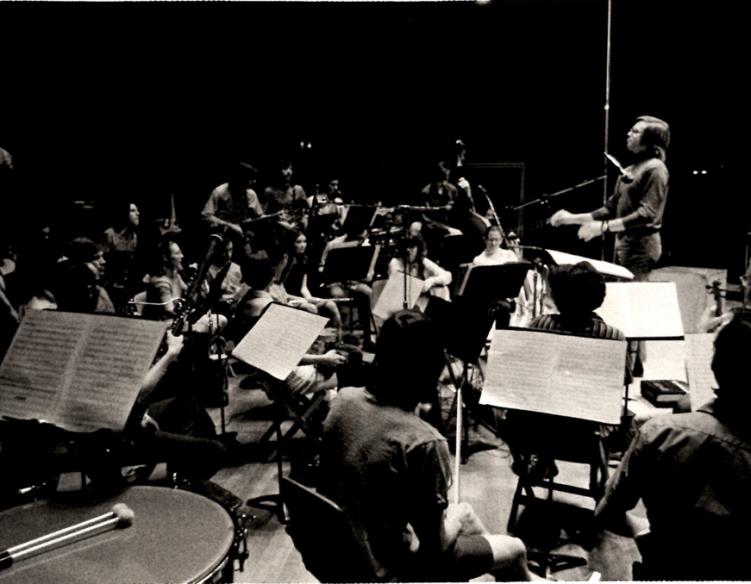
For me, it all began the year before with the Who’s “Tommy” and Webber & Rice’s “Jesus Christ Super Star”. Sprinkle in a heavy dose of teen angst and you get “The Poor Knight”. That was the voice of our generation and I wanted to be a part of it. What started with some overblown sense that I could write an opera and my mother’s reaction … “Son, do you have any idea what you are doing?” … I replied “No” and the “Poor Knight” was born and soon turned into a class project. Someone had suggested that perhaps I could apply for money provided by the Experimental Student Grants Committee to fund the undertaking and sure enough they agreed … twice! after I ran out of money the first round. There is a God up there somewhere and I’m sure she plays guitar and is a CC grad.
I needed a quiet place to work so I rented a shack down by the RR tracks south of campus for $60/month and bought an old upright piano. If you dropped a pencil at the front door, it would roll across the room, past the bathroom and under the piano. I lost a lot of pencils that year. I was so poor, at least Mrs. Garcia across the driveway thought so, she would give me a pot of beans she had prepared. Very tasty and gratefully accepted.
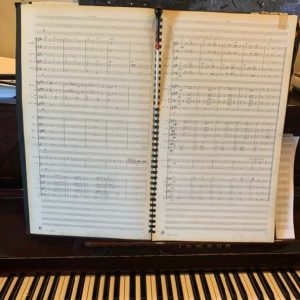
And so I began not sure where to begin but certain it would lead somewhere. My mother was so concerned she asked my sister to take the semester off from UNM to come up to the Springs and take care of me. Family love knows NO boundaries.
Ok, moving on, I had enough money to print the score and all the orchestra parts and pay the musicians … ya gotta have French horns, winds, timpani and a full string section from the Colorado Springs Symphony Orchestra, along with a rock band, chorus, dance troupe, and narrator with interspersed readings from the narrative poem written by class mate Wayne Philips around which “The Poor Knight” was based.
The lyrics, music and conducting were my responsibility which is where a heavy dose of teen angst made its way into the lyrics. Not the least my own anxieties thinking I could tell real symphony players how to play. “It just sounds better … I think” Yes mother, I had NO idea what was involved.
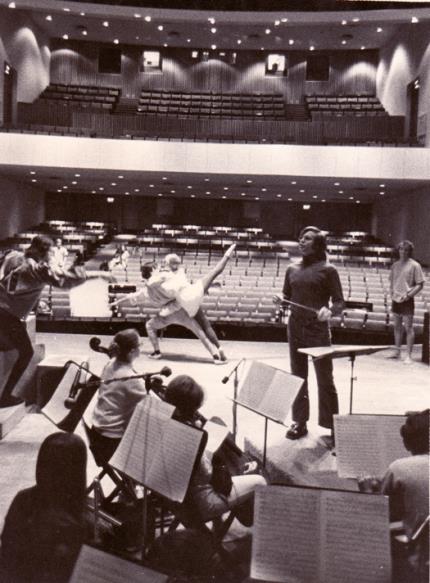 The cast included Ronald Ohl as narrator, dancers included Dimitri whose heart was broken by the pain of love danced by Mark Grey, Merlin, yes the renowned alchemist living his life in retrograde, danced by Mike Nettelton, the girl, causing all the love pain, danced by Sally Wagner who also did all the choreography and the singers, Dimitri sung by Richard Powell, Merlin sung by William Laforce and the chorus with Ellen Frerichs, Katherine Bradley and Paula Cheever.
The cast included Ronald Ohl as narrator, dancers included Dimitri whose heart was broken by the pain of love danced by Mark Grey, Merlin, yes the renowned alchemist living his life in retrograde, danced by Mike Nettelton, the girl, causing all the love pain, danced by Sally Wagner who also did all the choreography and the singers, Dimitri sung by Richard Powell, Merlin sung by William Laforce and the chorus with Ellen Frerichs, Katherine Bradley and Paula Cheever.
Opening night, May 2, 1971 at 8:15 pm finally arrived at Armstrong Hall.
As ready as possible, the curtains opened, and I walked up to the podium. However, when renting my tails I forgot the black shoes and all I had were my beat up white tennies. That gasp you heard from the audience, that was my Mother. And so we began.
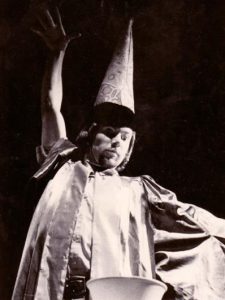
It wasn’t until after the Overture, “Where Are You Going”, “Dimitri’s Dream” and “Orgasm” did I have the courage to turn and face the audience. It must have been a slow Saturday night on campus because the hall was packed including the isles … just keep breathing I told myself.
Perhaps I’m getting ahead of things. The back story is this young man Dimitri and his girlfriend who leaves him. He becomes distraught with the pain of love (enter the teen angst) and after sleepless nights he decides there must be a magic elixir to erase his pain. And so he summons the master of all magical concoctions, Merlin. The challenge is Merlin is living in retrograde and they meet in that brief moment as Dimitri lives forward and Merlin lives in reverse. And so the entire opera unfolds in that brief moment as they are passing each other.
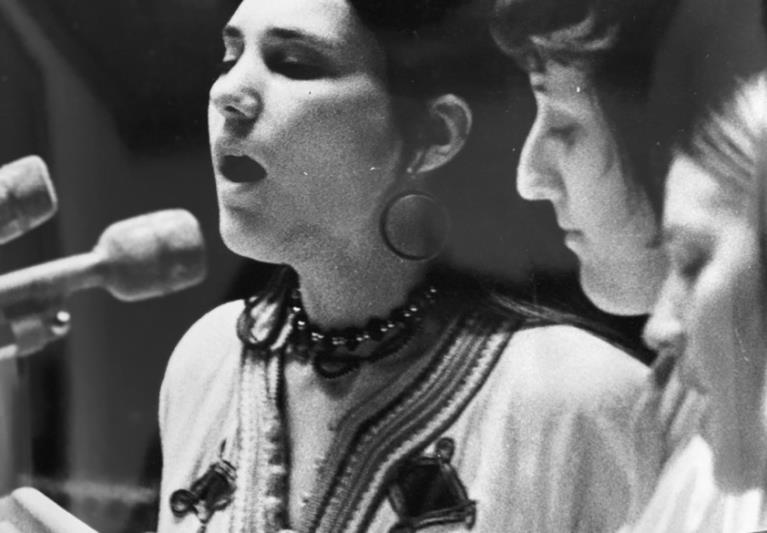
In the end, Merlin tells Dimitri there is no elixir so powerful as to erase the pain of love … he is on his own. And the opera ends with Merlin and Dimitri singing a round duet together …
Dimitri: “Help me Merlin I’m coming down; my head is aching spinning round. My eyes will close but my mind won’t rest her images searing in my chest …”
Merlin: “Now in your sorrow come look again and you shall know the truth why all your tears and sorrow have been, can’t you see, your joy and sorrow are all the same to me.”
Standing up there, it all unfolded in a blur and when it came time for the curtain call, our classmates gave us all a big round of cheers.
And what did C.C. and the block plan teach me? I could draw the most outrageous idea out of myself but only with the generous help from C.C., my classmates and all their talents. To this day I don’t recall if I thanked them all adequately but unless there is a statute of limitations on gratitude, let it be known now how grateful I was then and to this day for the community of my class of ’71 and the creativity we all displayed together. Thank you block plan. Thank you C.C.
